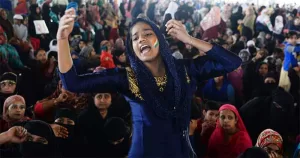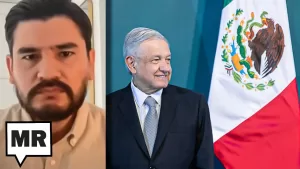The ongoing border crisis with China, which came to light in May 2020, has been shrouded in mystery by the Narendra Modi government’s refusal to acknowledge the severity and intent of the Chinese challenge in Ladakh.
The ingress by soldiers of the People’s Liberation Army (PLA) has created a situation, as confirmed by a senior police official’s report, where Indian soldiers are unable to reach 26 of the 65 patrolling points in Ladakh which it was accessing before 2020.
In 20 rounds of talks between corps commanders, the Chinese side has not agreed to Indian proposals for disengagement in Depsang and Demchok, or for de-escalation in the five areas where disengagement has taken place. There has been no tangible progress in border talks after September 2022, while Beijing has flatly rejected any calls for a return to status quo ante.
Now even Indian military officials, following the line set by external affairs minister S. Jaishankar, have stopped mentioning the phrase ‘status quo ante’ and no longer appear to be pressing the demand for full restoration of patrolling rights on the border. This has raised suspicions about the concessionary intentions of the Modi government – perhaps in the run-up to the 2024 Lok Sabha elections – in somehow declaring the border crisis with China as “resolved” even at the cost of unfavourable terms for India.
The PLA has denied the Indian Army’s patrols access to five patrol points – PP 10, 11, 11a, 12 and 13 – by blocking them at Bottleneck/Y junction around 18 km inside the LAC.
Map: The Wire.
The biggest indication of this new approach came from an interview given by the Northern Army Commander, Lt Gen Upendra Dwivedi, who claimed that there has been a “persistent approach from both sides” and “we are looking at [ways so] that mutual concerns are addressed”. He desisted from criticising the Chinese in any way, instead arguing that “the aim is that basically we are looking at peace and stability. We want to prevent violence, so keeping these two factors and give negotiations the time – to gain time this [creation of buffer zones] is the only way forward.” The emphasis on negotiations and ‘positive approach’ from China, when the PLA has made territorial advances on the ground and denied Indian soldiers its hitherto exercised patrolling rights is baffling.
Gen Dwivedi’s interview came days after some extracts from the forthcoming memoirs of former army chief, Gen M.M. Naravane were published by PTI. Naravane handled the China border crisis, including the Galwan clash, at its peak and his revelations were not kind towards China or President Xi Jingping.
Talking about the Galwan clash in June 2020, where 20 Indian soldiers and at least four Chinese soldiers died, Naravane wrote, “June 16 is (Chinese President) Xi Jinping’s birthday. This is not a day he will forget any time soon. For the first time in over two decades, the Chinese and the PLA had suffered fatal casualties.” He also wrote about the political directions given to him on 31 August 2020, after the threat of a full-blown conflict with the PLA in the Kailash Range became real. Rajnath Singh, the defence minister, called him at night and “said that he had spoken to the PM and that it was purely a military decision. “Jo ucchit samjho woh karo (Do whatever you deem is appropriate).”
“I had been handed a hot potato. With this carte blanche, the onus was now totally on me. I took a deep breath and sat silently for a few minutes. All was quiet save for the ticking of the wall clock,” he says. He passed orders to the Northern Army Commander “to move a troop of our tanks right to the forward slopes of the Pass and depress their guns so that the PLA would be staring down the barrels of our guns”. The Northern Army Commander had “recommended that the only way to stop the PLA was by opening up with our own medium artillery, which he said was ready and waiting”.
His memoirs are now ensnared in some sort of national security vetting process by the government and are unlikely to see the light of day. India’s corporate-owned big media, including correspondents covering national security, have let Naravane’s explosive disclosures sink without a trace. The primary aim is to prevent an embarrassment to the Modi government over its handling of the crisis, but the secondary goal seems to be to avoid creating a strong anti-China narrative in the public space.
Naravane himself now seems to have sensed the official mood. In his latest column he argued that because “India and China are now facing off in Eastern Ladakh for the fourth successive winter,” India must consider that the “time is ripe, therefore, for negotiations to recommence, not just for the remaining friction points but for resolving the overall boundary question”. Clearly, the optics are being built for creating an environment in which India accepts a negotiated solution that reinforces China’s aggression on the Ladakh border.
Former foreign Secretary Vijay Gokhale last month published a paper at Carnegie India where he laid out “the options that might be available to India to build back a framework for peace and tranquility along the border areas”. He further outlined “the actions that India might consider adopting unilaterally as well as in the negotiations with China with the objective of creating the conditions for restoration of peace and tranquility in the border region”. His suggestions are exhaustive and unobjectionable but the underlying premise is that India must accept the new reality on the China border and somehow find a way to restore “peace and tranquility” in the border areas.
In a similar vein, former Northern Army Commander Lt. Gen D.S. Hooda (retd.) has suggested in a recent policy brief the adoption of “a limited and measured approach to breaking the impasse at the LAC, where India and China can look at calming the military situation with quiet political endorsement”. Asking for jointly identifying disputed areas on the LAC, he suggests that “either no-patrolling buffer zones could be established or patrolling patterns agreed upon with a specified periodicity to avoid face-offs between opposing troops. Additional hotlines and meeting points should come up along the LAC to resolve any local incident promptly”. The whole idea seems to be rooted in a need to quickly end the crisis, even if the Chinese continue to hold an upper hand.
Is the sudden plethora of articles providing justifications for an Indian engagement with China to “resolve” the border crisis a coincidence? Or is it driven by the political need to create a narrative where a negotiated settlement that rewards Chinese aggression on the border is seen as the only viable option? As Major General Ashok Mehta (retd.) recently wrote, the establishment is gripped by “the fear of annoying China and escalating the conflict”. He claimed that there are “no buyers for conducting any game-changing operation similar to Snow Leopard on land or at sea or exploiting China’s Malacca dilemma”. The Modi government needs to shed “diffidence and deference” towards China. A determined approach doesn’t need the narrative that is being constructed now.
(Courtesy: The Wire.)




